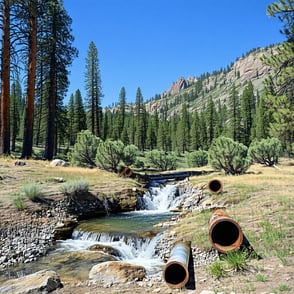A judge has ruled that the concessioner at Grand Canyon National Park was not required to indemnify the United States for injuries suffered by a visitor who sued the United States for injuries due to NPS’s negligence. The visitor was injured stepping out of a restroom maintained by the concessioner. She fell after not seeing a single-step transition outside the restroom door. The steps were not designed by the concessioner. To the extent the injury occurred due to the flawed design of the steps leading out of the restroom, the court held that the United States could not invoke the concession contract’s indemnification clause and require the concessioner to pay for any damages caused by the flawed step design.
The visitor had initially sued NPS. NPS then informed the visitor that the concessioner “possessed” the structure at issue at the time of the incident. The visitor subsequently also sued the concessioner. NPS then filed a cross-claim against the concessioner in an effort to have the concessioner pay for any damages owed by NPS.
NPS concession contracts contain a standard indemnification clause which requires a concessioner to “assume liability for [] and indemnify the United States of America [] from and against any and all liabilities, obligations, losses, damages or judgments [] in any way connected with or arising out of the activities of the Concessioner.” NPS argued that this clause required the concessioner to indemnify NPS for any damages owed to the visitor. The court, however, noted that the clause had to clearly state that it applied to actions due to NPS’s negligence in order for the concessioner to have to indemnify NPS in this instance. The court then found that the clause did not clearly apply to NPS’s negligence, and therefore the concessioner was not required to indemnify NPS for any damages NPS paid to the visitor for damages caused by NPS’s negligence.
While the injury may also have been caused by the concessioner’s failure to provide adequate signage warning of the step, the visitor had filed her claim against the concessioner too late and her claim directly against the concessioner was dismissed. Had she filed a timely claim, the court ruling indicated that the concessioner and not NPS would likely have been liable for any injuries due to the concessioner failing to provide adequate signs warning of the step.
Tags:
Case Commentaries



